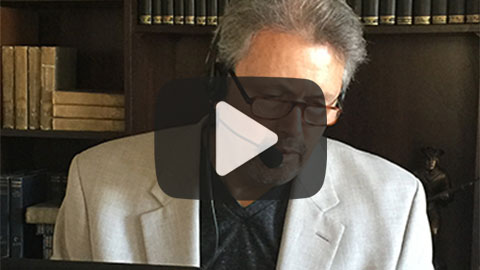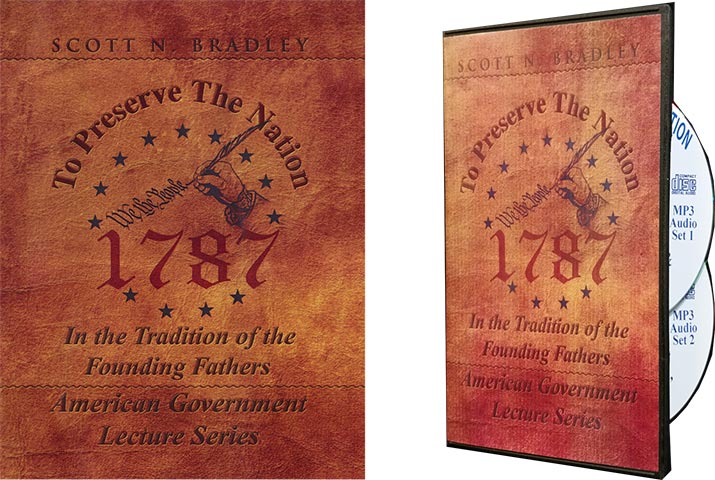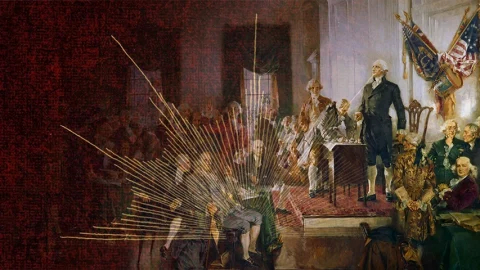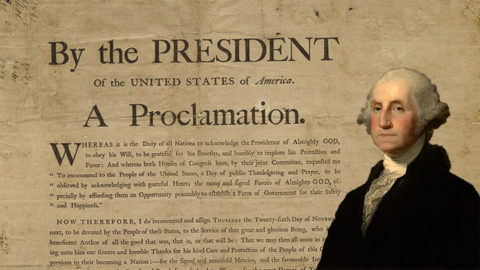In regards to the process by which the United States Constitution is to be changed, the United States Constitution, Article V states:
“The Congress, whenever two thirds of both Houses shall deem it necessary, shall propose Amendments to this Constitution, or, on the Application of the Legislatures of two thirds of the several States, shall call a Convention for proposing Amendments, which, in either Case, shall be valid to all Intents and Purposes, as Part of this Constitution, when ratified by the Legislatures of three fourths of the several States, or by Conventions in three fourths thereof, as the one or the other Mode of Ratification may be proposed by the Congress; Provided that no Amendment which may be made prior to the Year One thousand eight hundred and eight shall in any Manner affect the first and fourth Clauses in the Ninth Section of the first Article; and that no State, without its Consent, shall be deprived of its equal Suffrage in the Senate.”
In brief, Article V states that amendments to the Constitution occur when two thirds of both Houses of Congress have agreed on a proposed amendment, and three fourths of all States agree to those changes.
The founders of this Nation were good, and wise, and honest men who sought to establish a charter for this Nation which would assure the blessings of liberty for themselves and their posterity; but in their wisdom, they knew that they were mere mortals that were not omniscient. They knew that time and circumstances may ultimately dictate a need for changes in the Constitution. They were also firm in their conviction that the Constitution was a written, binding contract which all who hold office are required to obey. Washington stated in his Farewell Address: “the constitution which at any time exists till changed by an explicit and authentic act of the whole people is sacredly obligatory upon all.”
If changes became necessary, they were not to occur through usurpation or by any means than by the process defined in the United States Constitution. The founders did not embrace the modern lie that the Constitution is a “living document” which can be change by decree, in practice, or by any other means than the Article V process.
In recent years a gross misunderstanding has become popular: that the Constitution may be modified upon the whim of the Supreme Court (some have called the Supreme Court a “constantly sitting constitutional convention”), or by the decree of a President, or by the vote of Congress. These philosophies defy all logic, reason, and firmly established constitutional principle. And yet, this position is fostered today by those whom the founders of the Nation warned against.
Founding Fathers of this Nation were unequivocal in their position that the Constitution was binding upon all until changed by an authentic act. The amendment process, as defined in Article V of the United States Constitution, is the ONLY authentic way to modify the Constitution.
In his Farewell Address, Washington warned that factions, groups, parties, or combinations would arise which would attempt to modify the foundation of the constitutional government which had been established, and that those efforts could result in the overthrow of the freedom of the land, saying:
“All obstructions to the execution of the laws, all combinations and associations, under whatever plausible character, with the real design to direct, control, counteract, or awe the regular deliberation and action of the constituted authorities, are destructive of this fundamental principle and of fatal tendency….
“However combinations or associations of the above description may now and then answer popular ends, they are likely in the course of time and things to become potent engines by which cunning, ambitious, and unprincipled men will be enabled to subvert the power of the people, and to usurp for themselves the reins of government, destroying. afterwards the very engines which have lifted them to unjust dominion….
“Toward the preservation of your Government and the permanency of your present happy state, it is requisite not only that you steadily discountenance irregular oppositions to its acknowledged authority, but also that you resist with care the spirit of innovation upon its principles, however specious the pretexts. One method of assault may be to effect in the forms of the Constitution alterations which will impair the energy of the system, and thus to undermine what can not be directly overthrown.” (Messages and Papers of the Presidents, George Washington, Vol 1, Pg.209-210)
It is currently in vogue to suggest that the Constitution is somehow flawed, and that recent usurpations by the federal government demonstrate the truth of that position, particularly in cases in which the Founding Fathers of this Nation clearly intended that jurisdiction in a matter be withheld from the national government and left in the hands of the States. Those who hold the position that the Constitution is flawed are often quick to insist that constitutional amendments are desperately needed to correct the “flaws” they perceive. The real truth about “flaws” which are supposedly in the current United States Constitution is this: Every single one of these so-called flaws have been brought about by usurpation of authority not granted by the Constitution. The flaw is not in the Constitution—it is in those who seek power, and those who allow them to hold power. The key to stopping this is in a courageous Congress, not in scrapping the Constitution, or in modifying it every time some tyrant seeks to usurp power not granted in God’s inspired document. If we changed it for every whim of false philosophy which came along, we would have many thousands of amendments, and not a real Constitution.
Virtually all of the “flaws” which clamor for a constitutional amendment could be solve by the majority vote of a courageous Congress to remove the matter from a runaway court system. Logic, reason, and historical precedent testify that the task of obtaining a simple majority in Congress is much easier than getting two-thirds of both houses and three-fourths of all the States to bring amendments forth that aren’t needed to begin with.
And the danger of seeking amendments in the many emotional issues which face us today is magnified by huge orders of magnitude if the “good and well-meaning people” of the land become so frustrated and angry with a Congress that can’t bring them an amendment they wish to pass that they demand a constitutional convention be called. Remember, Article V of the Constitution requires Congress to convene a convention if two-thirds of the States call for one (the Constitution says they “shall call” a convention, not that they “may call” a convention). We are already dangerously close to that event, within only a few States.
Of course, the only national constitutional convention we have had in the entire history of the United States resulted in what we would call today a “runaway convention.” While those who attended the Convention of 1787 had been called together to correct perceived flaws in the existing Constitution, The Articles of Confederation, they immediately saw within the purview of their authority as duly elected representatives of the people and States to set aside the existing constitution and write another one. That is exactly what they did, and they even changed the unanimous consent required by the Articles of Confederation for change to a lesser level to assure easier ratification of the new constitution. Fortunately, God had raised up men for this very purpose, and the results were endorsed by God. Where are such men today? In light of the dangers associated with a constitutional convention, one must ask one’s self: “Among the prominent leaders of this Nation, is there even one found who could hold a candle to the inspired works of those whom we call the Founding Fathers of this Nation?” The risk for such an action today cannot be measured.








